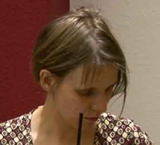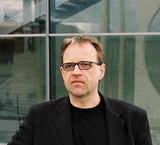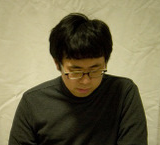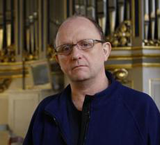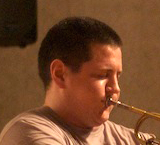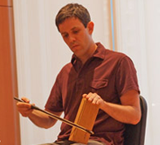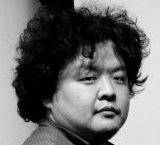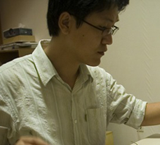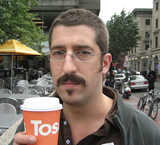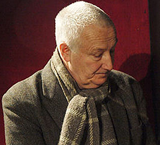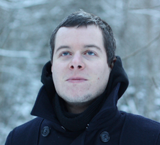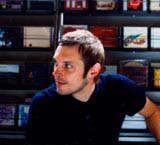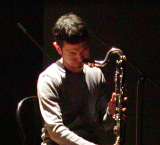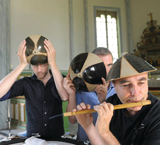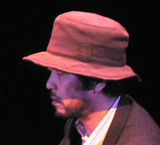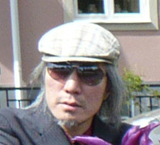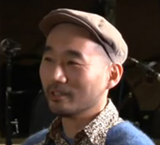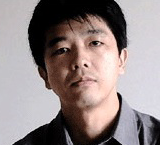Jun 23, 2017
Hello! Long time no see... Two news:
1. The website has been redesigned to be mobile-friendly (please contact us if you find any bugs).
2. Presqu'île Records is now on Bandcamp, with streams, downloads (FLAC / MP3) and CDs.
Dec 1, 2012 First Donation
Jul 25, 2012 Review at TMT
Jul 22, 2012 The Wire, PT Reviews
Jul 7, 2012 On Resonance FM
Jun 23, 2012 Flags Across Borders (and more)
Jun 2, 2012 Radio & Review
May 11, 2012 Admirable Restraint
Apr 23, 2012 "VA – Fukushima!" is out today!
Apr 14, 2012 "Fukushima!" pre-orders
Mar 3, 2012 "Fukushima!" preview
Jan 29, 2012 Announcing VA – Fukushima!
Oct 30, 2011 After a long hiatus...
Sep 5, 2009 Omni: out now!
Aug 15, 2009 Forthcoming third release
Nov 28, 2008 More shops, release party
Nov 2, 2008 First releases are available now!
Oct 4, 2008 Delay...
Aug 16, 2008 Out soon
PSQ001 – CD Digipack – Release date: 2008/11/03
Tracklist
01
Santa
60:11
PSQ002 – CD Digipack – Release date: 2008/11/03
Tracklist
01
Duo
06:54
02
Solo(s)
40:38
PSQ003 – CD Digipack – Release date: 2009/09/05
Tracklist
01
40:10
40:10
02
05:02
05:02
PSQ004-2 – Double CD Digipack – Release date: 2012/04/23
Tracklist
1.01
John Tilbury – Al Contrario (D.Smith)
34:02
1.02
Magda Mayas - Foreign Grey
09:10
1.03
Choi Joonyong / Joe Foster / Hong Chulki / Jin Sangtae – From Dotolim
14:29
2.01
Burkhard Beins – Counter
06:25
2.02
Mark Wastell / Jonathan McHugh – Eventide
06:27
2.03
Annette Krebs / Chris Abrahams – Duo
02:43
2.04
Annette Krebs – Field recording of the anti-Wall Street-demonstration in front of the Reichstag in Berlin
03:58
2.05
Mural – Fukushima for the Time Being
09:35
2.06
Michael Pisaro / Greg Stuart – The Bell-Maker, from Four Pieces for Recorded Percussion (Il faut attendre)
21:34
2.07
Greg Kelley – Cylindrical Mirror
07:05
Below are the "bonus tracks" of the compilation, featuring Otomo Yoshihide's Lecture, two exclusive videos from AVVA (Billy Roisz and Toshimaru Nakamura), videos from Billy Gomberg and Richard Kamerman, paintings from Amy Casey.
The Role of Culture: After the Earthquake and Man-made Disasters in Fukushima
by Otomo Yoshihide
Tokyo University of the Arts
April 28, 2011
Hello, I'm Otomo. Thanks for coming. Today's lecture is entitled: "The Role of Culture: After the Earthquake and Man-made Disasters in Fukushima."
I've been lecturing in the Tokyo University of the Arts about once every year for these past 10 years, and have discussed topics like sound and noise and what ensembles mean, etc. So when I was first asked to give today's lecture, I wasn't expecting to talk about something like this. But the earthquake occurred on March 11 and I happened to grow up in Fukushima, and I'm currently going back and forth between there and Tokyo to start up a new project related to Fukushima, so I'll be speaking about that today. But it won't be about politics, or about the science of how the nuclear power plant can be cleaned up; rather, I'd like to stick to the cultural aspect, where I can be involved.
I was born in Yokohama in 1959. That's 14 years after the end of WWII. I grew up in times when American soldiers were still hanging around the city. By the time I became aware of the things around me, Japan was going through a period of rapid economic growth, and in 1968, when I was in the third grade, my father's job required our family to move to Fukushima. That was when my relationship with Fukushima first began, since we had no relatives there; before then, I had absolutely no ties at all with the area. So since then, I lived in Fukushima for about 10 years until I entered university in 1978. After I moved to Tokyo at age 18, I hardly ever returned to Fukushima except to visit my parents during the New Year's holidays, and until the earthquake on March 11, I hadn't kept in touch with most of my friends back there, either. So, truth be told, I didn't feel homesick or anything like that at all.
But after the earthquake struck on March 11, even a heartless guy like me became concerned. At first, I was anxious about my parents. But even after I found out that they were OK, I couldn't stop worrying. I'm sure you all felt the same way, and the other musicians around me were like that, too. We all probably wanted to take action for the people in the Northeast. The musicians around me usually never say stuff like "helping others." These good-for-nothing people who had no other interest but music began saying things like "helping others out." Of course, I was one of them.
Not only that, but the nuclear power plant went "Boom!" right? When you live in Fukushima for 10 years, you become well aware that there's a nuclear power plant there, and everyone knows that it could be dangerous when an earthquake strikes. But, and I'm sure it's the same for everyone, you don't live in fear of earthquakes from day to day, so most people including myself knew about it, but hadn't given it much thought.
Then that accident occurred. Thinking back on it now, I think Tokyo went into a kind of panic mode when radiation was detected from Tokyo's tap water. People didn't run away screaming, but I was panicking, too. But an incomparable amount of radiation was falling over Fukushima at that same time.
When I began thinking about such things, I became really worried. I was worried about my parents, of course, but they're around 80 years old and they've already got cancer. I actually had this black joke running through my mind about how they might actually get better with a little bit of radiation. (Laughs) But the general mood doesn't allow such jokes, does it? (Laughs) I'd planned on having someone transcribe this and putting it up on my website, but now I can't. I want to change the subject. Just a moment.
A Massacre Is Happening 200km from Tokyo
I mean, it's such a funny world, isn't it? Funny in the sense that it's like being in a Monty Python skit. It's strange. It's strange because something close to a massacre is happening. Except it's killing slowly, like DEATH itself. Taking decades to kill. Maybe people won't die. But they're gradually making a place unsuitable for living in a way that's not against the law. I think this situation is inhumane.
When I turn on the TV, though, there are people still talking about how thermal power generation emits CO2. It's true that thermal power emits CO2 and I'm sure nuclear energy has its strong points as well as its weaknesses. But I think people should clearly point out that the current situation is inhumane. I think it's something close to murder. When someone's being stabbed with a knife, it's easy to understand, but the fact that this situation isn't so easy to understand makes it very tricky. I'm going to use this analogy again in this lecture... it's easy to understand, isn't it? When someone's being stabbed with a knife, you don't think it's a good thing, do you? And the person being stabbed won't even have the time to wonder if it's good or not, they'll just think, "OW!" I think this same thing is happening right now, except over a much longer period of time.
Not only that, but people are suddenly being chased away from their homes. Some say that the same thing happens with hydroelectric power generation, but I think that a village ceasing to exist because of a dam shouldn't be used as a comparison. Hydroelectricity might also be inhumane, but at least it's built on mutual consent. But nothing has been agreed upon regarding this current situation, and something clearly inhumane is ongoing. I'd like to ask everybody to first keep that in mind. I don't care if you're pro- or anti-nuke. That's for each of you to decide for yourself, but right now, something inhumane is happening in Fukushima and I don't think that inhumane things are good. What that means in relation to the pros and cons of nuclear energy isn't something for me to say right now. Each of you can decide for yourself, but please just keep that one thing in mind. The following lecture will be based on it.
Let's talk about Fukushima. In March, I was glued to the Internet and TV day in and day out, just like most of you here probably. I became a makeshift scientist, muttering things like "What's a Sievert?" and "Becquerel?" and "Micro-?" and "So 100 times that is how much?" One's lack of education becomes apparent during times like this. So in March I was caught between a sense of justice and becquerels and felt completely overwhelmed and burnt out.
Also, circumstances prevented me from going to Fukushima. I was told that I'd just be everyone's way. A guy like me with no skills would just be a nuisance there. And since there was no gas in Fukushima, if I went by car, I might not be able to come back, so I couldn't go in March. But all the same, I was simply worried to death. Even a person who wasn't very homesick felt like that.
Then around the end of March, I got a call from Mr. Michiro Endo. Michiro is also from Fukushima and is from my same high school, though he's 9 years my senior so we never actually went to school together. He used to be in a band called Stalin and is one of the pioneers of Japanese punk, known for his radical performances onstage. Well, I got a call from him and he said that he wanted to discuss something with me. I'd been thinking of calling Michiro, too, so we met and talked about how Fukushima was seriously in trouble. Of course, the other disaster-stricken areas were suffering, too, and in complete chaos, but what made Fukushima worse than these other areas wasn't just the damage caused by the quake or tsunami, but by the nuclear power plant. The nuclear power plant just won't return to normal. Radiation levels are still extremely high even in the urban areas.
And our question was, was it OK to talk about reconstruction in Fukushima while this was still happening? Frankly, we honestly questioned whether it even possible to reconstruct under the current circumstances, and that it was more important to first do something about the situation. To do something about the radioactive material accumulated in elementary schools, for example, or about the fact that residents are being prevented from living in their own homes. While other places can begin shifting towards reconstruction, Fukushima still isn't ready for that yet.
After talking with Michiro about such things, I told him that I was heading out to Fukushima to see for myself. That we should base our next move after considering what was really needed in Fukushima. Michiro felt the same way. His younger brother works at a hospital in Nihonmatsu, and hadn't been able to go home even for a day since the quake. Things were just crazy over there. By then, I just wanted to go to Fukushima above all else. I wanted to see my parents. My younger brother had already ventured into Fukushima before me, but he climbs mountains and races in rallies so he has survival skills. So he was already helping out over there, but I have no such skills, so I went after things had settled down a bit and when it was clear that gas was available in Fukushima; when relief goods had been distributed and the infrastructure restored. That was 4 weeks after the quake. I met musicians and event producers living in Fukushima, and various other people in Fukushima City.
Shi no Tsubute (Stones of Poetry): What Conveyed the Reality of Fukushima Better than Any News Report
Before I went, when I wanted to find out about information from Fukushima on the Internet, blogs and Twitter were most convenient. I was following "tweets" from ordinary moms raising kids in Fukushima and such people, and among them, there was a poet named Ryoichi Wago that I'd been paying close attention to. At first he was tweeting about the emergency shelters and such things, but suddenly his tweets turned into poetry. He began posting poem after poem under the collective title Shi no Tsubute (Stones of Poetry), and I'd been reading them. Mr. Wago's tweets felt more like windows looking into Fukushima to me rather than the act of reading poetry, and they resonated in a real way like no other news report had.
Until then, I wasn't too interested in poetry. Honestly speaking, I'd never thought that it was very interesting. And when I read Mr. Wago's poems for the first time, I didn't suddenly discover that poetry was interesting; rather, I read them as something I needed. Today's lecture is entitled "The Role of Culture," but leaving "roles" aside for a moment, people really do need to express words to survive and there are many ways to do so. Reporting something, for example, or simply talking with your friends. But among such methods, there were words being expressed that possessed a kind of universality, and by reading Mr. Wago's tweets, I began to realize that.
So I felt I wanted to meet Mr. Wago and contacted him. And to my great delight, he already knew about me. He happened to attend the high school that I'd gone to, and although he's 7 years my junior, he had vaguely known about me as someone in the music field who was a graduate of his school. And so we met and talked about various things.
People Seemed To Be Bleeding Profusely from Their Hearts
When I went to Fukushima and met with people, they all talked a lot. They all appeared to be really cheerful. But the more we talked... This might just be my impression, but this applies to almost everybody I met in Fukushima. I'm sorry if this comes across as sounding very offensive, but it was as though everyone there had been wounded in their hearts, or bleeding profusely from their hearts. I'd never seen anyone like these people before. And I mean even the people whose homes weren't destroyed, or who haven't been chased away from their homes. Later on, I did meet people whose circumstances were like that, but even the people whose utilities were working fine and living relatively normally seemed to be hurting, too. When I listened to what they had to say, they'd tell me that their family had evacuated, or that customers had stopped coming to their stores, for example.
Around that same time, there was a news report on TV in Tokyo saying, "There are no people in Fukushima right now. All the shutters are closed." Well, I knew about that already because it wasn't something that started recently. I mean, go to any provincial city, and you'll find that there are no people and the shutters are closed. It's not because of radiation. But when it's reported like that on the news, it appears as though some place that used to be vibrant has suddenly become a ghost town. It's TV magic.
I've been living in Tokyo for 30 years now and was born in Yokohama, and only lived in Fukushima for 10 years. So I'm essentially an outsider, but what I felt when I went to Fukushima and spoke with the people there was that many were tormented by a sense of being victimized. The first thing people talked about was the damage caused by bad rumors and misinformation. These kinds of damages actually did occur, for example, produce not selling and people being turned away from hotels and such. I'm sure there were a lot of other examples, but the bad rumors going around in Fukushima were a lot worse than that, and there were some that I'd never even heard of. For example, that there's an ongoing plan at Tokyo Station to put badges on just the people from Fukushima. Hardly anybody had said anything like that in Tokyo, but in Fukushima, everyone came up to me and said, "Folks in Tokyo are saying things like that, right?" Or that women from Fukushima wouldn't be able to get married. I was asked similar questions by many people, not just by one person, in Koriyama and in Fukushima City. Such rumors had spread like wildfire over there, and the situation was so much worse than the rumors being spread in Tokyo. I think this is very symbolic. It means that people are at a loss, and that they feel isolated and forsaken. That's what's actually happening right now.
Can a Sound Mind Be Maintained in Invisible Radiation?
What I'm most worried about is actually this. They say that the problems at the Fukushima nuclear power plant will be brought under control in 9 months, but I think that they just hope that things will be back to normal in 9 months. Everyone vaguely senses that matters are much more complex than that. There are people who are angry about how the Prime Minister said that some areas might become inhabitable for 10 or 20 years, but it's actually a possibility, especially the areas close to the plant itself.
I think it's really frightening to face reality up front during times like this. You're at a loss. Your family's evacuated. Radiation levels are high. The numbers being released by the government are high, and on YouTube you see the reading of a Geiger counter measuring the radiation of the school grounds skyrocketing. How could you maintain a sound mind under circumstances like that? Everyone talks about returning to "life as usual," but you want to scream, "Stop talking about life as usual when there's nothing 'usual' about life around these parts!" In other areas, the focus is gradually shifting towards reconstruction. And that's important, too, and I know that it's important to stand together and start working towards that. But I acutely felt that Fukushima still isn't capable of doing so.
The most troublesome aspect of radiation is the fact that you can't see it. When you look up at the sky, the blue sky is clear and beautiful. At night, the moon is really so much lovelier than in Tokyo, and when you inhale, the air tastes great. Wouldn't it be nice if radiation had flavor? But in reality, it has no taste, and what's more, they say that some effect might emerge at a certain rate a number of years later. There are so many theories about radiation out there, and it's so hard to decide which is correct, isn't it? When you look on the Internet, there are even some who are claiming now that radiation is totally OK and that it's actually good for your health, which took me by surprise and I thought, "Wow, it's good for you?!" But I think if you're desperate, you'll believe stuff like that. If someone went up to a desperate old lady and said, "This filter will remove 90% of radiation from tap water. 25,000 yen, please," then she'll probably end up buying it. This is what it's like right now. What's happening in Fukushima is like living in a world of comedy, like you're being swept away from reality. I'm not conveying this very well, am I? But it's really very hard to understand.
When you go closer to the coast, it's easier to understand because everything is destroyed. But in Fukushima City and in Koriyama, it's really difficult to understand. Of course, there are places where buildings are lopsided and roofs have fallen, but that's not what I mean. Have you heard of the theory used by pro-nuke people that sidesteps the issue about how it wasn't the radiation that killed people in Chernobyl, but that they were all worn down mentally? Well, I think there's some truth to that. Right now, the direct damage caused by the radiation isn't so much the problem as the wounds in people's hearts, the emotional disorders.
Even the people in Tokyo are stressed out. I mean, just watching the flood of reports on TV and being told that radiation was detected in tap water caused a reaction like that, so imagine what it must be like in Fukushima. And the accident level was raised to 7 just when I happened to be there. Kawamatamachi and Iitatemura, located directly east of Fukushima City, were included in the planned evacuation zone, and you could sense the question, "Is Fukushima really going to be all right?" looming over everyone's heads. Nobody could say that everything was going to be fine; likewise, nobody could decide if people should be told to escape because things were seriously dangerous.
Everyone Has Lost Confidence and Is Wounded in Their Hearts
When I met with Mr. Wago and various other people in Fukushima, I told them that Michiro Endo wanted to do a festival in Fukushima. But everyone said, "What? A festival?" at first. And I also told people that Michiro would probably sing something like, "Fuck nuclear power plants!" because he has a song called "Tenbatsu nanka kusokurae (fuck divine punishment) !!!" So I asked people what they thought about Michiro wanting to sing, "Fuck nuclear power plants!" at a festival, and they said, "Please don't mention the power plant." Isn't this shocking? You'd think that the people in Fukushima are enraged about the power plant, right? Well, they're angry, of course. They're angry, but there's also a mood that prevents them from saying anything. Anyone who's grown up in Fukushima would understand, but Fukushima has its particular circumstances. And people feel inferior about the fact that they'd been promoting nuclear energy, but these aren't the only reasons why.
To explain the essence of this problem, I'm going to use that knife analogy again. Say for example there's a person who's been stabbed with a knife and fallen on the ground. He's still breathing and not dead yet, and some say that if the stabbed person is taken to a hospital, he'll be all right. Then suddenly, this really energetic guy with a strong sense of justice from Tokyo appears before them and says, "Knives are bad. Let's start an anti-knife movement!" I think the nuance is something like that. It's not a good idea. Well, at least it's still not the time. It's still more important to something about the wounded. This is the first problem.
And if it were simply a knife wound, then all you'd have to do is take the patient to a doctor and get him stitched up. But this wound isn't just about the people in Fukushima. It also includes those of us in Tokyo, and it's about "the heart." Until now, I'd been too embarrassed to use words like "the heart." People might say that it's the job of psychiatrists to heal wounded hearts and minds. But this isn't just about that kind of disorder. The wound isn't just afflicting each individual; everyone is collectively wounded. I think that the biggest reason for this is that everyone has lost confidence.
We lost confidence, too, didn't we? We didn't know what to do. I'm sure there were a lot of us who felt that we were completely useless. When you sit down and think about it, though, you realize that you were actually always useless, except you'd never had that truth thrust into your face before. Before, if I went to the bank and was told that I was ineligible to create an account, I wouldn't think that I was a useless person and become dejected. But the current situation brings me down. In short, someone who has always been useless won't become useful all of a sudden, but everyone acutely felt his and her own uselessness. Wanting to be of use to others is a noble desire, and I think even the people who weren't struck by the disaster are hurting like that as well.
Changing "FUKUSHIMA" into a Positive Name
In the disaster areas, there are many levels of damage ranging from the people who were hurt mentally, financially, and physically, to those whose hearts actually stopped because of an actual injury. In those terms, the situation in Fukushima City is really difficult to fathom, and there are those who refuse to admit the damage. Some people might see this and feel angry because they disagree. So this is just my personal opinion, but I feel that the way the people in Fukushima City and Koriyama are hurting is distinctive, and what's more, they're hurting from an extremely inhumane state of affairs. And like I said before, this pain originates from the loss of self-confidence.
Another reason has to do with the name of the place, "Fukushima." I think people need to feel a kind of pride about the place they live. Like for example, "Vegetables from Fukushima taste great." Or that it's not urban like Tokyo but the air's really good, or that one feels at home there. Or just that you like it there or you don't... it could be anything, but I think people's lives are built on such feelings. But now, the name "Fukushima" that refers to the entire area where people live has become synonymous with "Chernobyl," meaning a disgraceful place where an accident has occurred at a nuclear power plant. This name that hardly anyone had ever even pronounced outside of Japan has now become an infamous brand name. Everyone in the world has heard of Fukushima now.
When I see the demonstrations taking place overseas, like in Germany for example, I see signs with slogans like, "No More Fukushima" on them. For someone like me who was raised in Fukushima, it feels sort of miraculous, or just plain weird to see the word "Fukushima" written on signs in other countries like that. You'd understand if you replaced it with the name of your hometown. Ordinarily, unless something incredible happens, a place doesn't become that famous. But Fukushima has now become famous in a very disgraceful way, and who feels happy about becoming well-known like that? I think this is another big reason contributing to the loss of self-confidence.
While I was speaking with Mr. Wago, I realized something. If the name "Fukushima" continues to be burdened with this infamous baggage, its residents won't be able to go on, and won't be able to recover their self-confidence. And another thing that worries me greatly is something that's already beginning to happen, that Fukushima is going to become isolated. I said this before, but the other areas are beginning to shift towards reconstruction. Eventually, I think the desire to keep Fukushima, which can't start recovering yet, out of the picture will begin to permeate. When this happens, it will become like the other pollution-related diseases that has occurred in Japan in the past, and the situation in Fukushima will be labeled as something particular to the area and a lid will be put on it. The victims will be nicely compensated, but the problem will be put away as something just concerning that particular area.
But here's what I really want to say. Is this just Fukushima's problem? I don't even think it's just Japan's problem. It's the same as when Chernobyl happened. I'm not saying this to persuade people to begin opposing nuclear energy. That's not my purpose, but I don't think this is just Fukushima's problem. But how should I go about pointing out that it's not just Fukushima's problem? No matter how much I say that here, it's not very persuasive.
In that sense, and I realize this will sound offensive to the people of Chernobyl, but I feel that the name "Chernobyl" hasn't shed it's negative connotations. "Chernobyl" hasn't become symbolic of a movement to do away with nuclear power plants, for example, and we don't say, "Let's follow Chernobyl's example." I think this is because no culture has emerged from Chernobyl. Perhaps it exists, but I feel it doesn't come across. I apologize if I'm mistaken. I've been completely oblivious of such things before now.
Although this isn't the same thing as the problem of nuclear power plants, when people say, "No More Hiroshima" about Hiroshima, I don't sense the same kind of negativity there. I think that the people of Hiroshima have regained their self-confidence as the symbol of the peace movement. So I thought that "Fukushima" should also be turned into a positive name. After all, its name value is so high right now.
To make this happen, it's necessary to do something more substantive than merely working on image-building strategies. To give an example of what kind of substantive action could be taken to shift the name of "Fukushima" into something more positive, let's say that the mess at the nuclear power plant in Fukushima, currently still out of control, is contained through some kind of new technology. Then, and this is just an example, but Fukushima is designated as a special district promoting clean energy. If new, efficient technology emerges from Fukushima that makes use of wind or solar power hitherto avoided as being too inefficient, then that could give the name a positive image.
The Role of Culture Is to Depict a Positive Vision of the Future for "FUKUSHIMA"
I realize that it's extremely difficult to actually do something like that, but I feel that it's the role of culture to first start talking about such images and dreams. There are many kinds of culture. If someone wants to display a fun dream world without showing reality in front of people who are still in great pain, I think that's OK, too. Such music is OK, and so are such movies. In a way, I feel that what the people of Fukushima urgently need right now are actually things like that. For the people in so much pain.
But it's not enough to just dump a lot of fun things there. The next step should include more than just the kind of culture that helps people avoid facing reality. There's a plan to turn Fukushima into a special district allowing casinos. But building casinos won't change Fukushima into a positive name.
I think it's going to be very difficult to work in concrete terms towards making Fukushima into a positive name. But when you think about it, airplanes were put into use only several decades after the samurai in Japan discarded their swords and went through the Meiji Restoration. Seen in that light, it might be possible. Well, I'll be dead in a 100 years, so I'm just saying this irresponsibly, but... But we all have the freedom to dream, don't we? That's my first point. If we lose the freedom to dream, then I think that Fukushima will really die.
I'm not saying that people should keep living in Fukushima. I don't really think it's all right for somebody to say, "Well, I have the freedom to dream," and continue living in an area where the radiation levels are dangerously high. I think the reality is that unless some kind of technology to remove radiation is developed, some areas will be inhabitable. But not all of Fukushima is becoming inhabitable, so we should calmly keep that in mind. And if the time comes when some areas do become inhabitable... I know this sounds cruel, but it's necessary to make decisions and culture shouldn't deceive people about something like that. We have to keep our eyes open. And this isn't something that only culture should be concerned about. Science and politics should also work in conjunction with culture. But I suspect that science and politics alone aren't enough to change Fukushima's name into something positive, and in the end it's the role of culture to do so.
Transmitting Culture from "FUKUSHIMA" to the World
I think the first "culture" to emerge from Fukushima was Ryoichi Wago's poetry. I think it's necessary to lay the groundwork to transmit the culture that emerges from Fukushima post-disaster. The current reality is that the main culture found throughout Japan is the one from Tokyo. We've all been influenced by the overwhelming amount of culture transmitted from Tokyo. The Tohoku (Northeast) region, Fukushima in particular, has always been in an awkward position in this sense. Thanks to the Shinkansen bullet train, it's possible to go to Tokyo in a little under 2 hours, which places Fukushima almost completely within the sphere of Tokyo culture, but at its very edge. This was where Fukushima stood, so before the quake, information might have been sent out from Fukushima but nobody in Tokyo thought to catch it. People in Tokyo didn't feel the need to do so, and the people of Fukushima had probably given up.
But now it's necessary to open a circuit to transmit directly from Fukushima, not via Tokyo. So DOMMUNE, a Ustream TV channel broadcasting from Tokyo, will be broadcasting from Fukushima shortly. As an independent station called "DOMMUNE FUKUSHIMA!" it will broadcast information directly from there. The first broadcast will be on May 8. A community FM station called KOCO Radio in Koriyama has a studio that accommodates Ustream broadcasts, so we'll be doing a talk show during the first half, and music and DJ segment for the latter half of the program. People from Fukushima, Tokyo, Miyagi, and other places will be featured on the talk show segment. I'll be the person from Tokyo and Mr. Wago will the one from Fukushima on the first show. Also, Mr. Ogawa, the curator of Sendai Mediatheque, and an artist who works with erasers who had evacuated from the disaster-stricken area in Minamisoma will be on the show. Mr. Naohiro Ugawa of DOMMUNE will also come from Tokyo. For the latter half, I'll be performing solo as well as Tabito Nanao, and Rei Harakami is scheduled to appear, too. So the plan is to keep transmitting through this circuit from Fukushima like this about once every 2 weeks on Sundays.
I'll announce the project that we're planning on doing from now on during this program. The important thing is to transmit from Fukushima. This is to prevent Fukushima from becoming isolated. At first this will be done in Japanese, directed from Fukushima to other parts of Japan, but ultimately we want to send our message out into the world, by translating our words into as many languages as possible. So we'll be creating things to be sent out from Fukushima.
We're also planning on organizing a large-scale outdoor music festival in Fukushima around the Bon Festival season in August. This is, of course, based on the assumption that the radiation levels are OK. Aside from the outdoor festival, we're considering various indoor projects as well. About 30 people have already volunteered to assist us, regardless of their companies or whether or not they have ties in Fukushima, and are helping us out with each of their special skills. We're still a bunch of novices, though, so right now we're trying to involve some more professionals as we get started.
The purpose of this project isn't just to perform music or organize entertainment. The biggest aim is to think about how we'll continue to observe Fukushima's ongoing situation. Right now, when everyone is hurting, a kind of entertainment that allows people to forget reality is necessary, too, so we're trying to balance that as well. If we try to face this harsh reality head on, we'd die. Because the ultimate way of facing reality would be to go right in front of the power plant itself.
There's just really one thing I wanted to say today. Let's switch the meaning of the word "FUKUSHIMA" into a positive one. Not deceptively, but in a fundamental way. What is necessary to make this possible? I don't think that the change will occur if some cool culture happens to emerge from Fukushima, because there are plenty of other places around the world that have cool culture. There are heaps of cool culture in London and in Tokyo and in Osaka and in Kyoto. Not just that, but how do we face the current problem in a fundamental way? If Fukushima could create a vision of the future, then it could change from its current position as a loser. How should we continue to observe reality? I really think that it's the role of culture to first present this matter of how we should face reality. I think it would be best if politics and science followed suit after that. Because frankly, right now the science to stop what's happening in the nuclear power plant is lacking, so somebody has to do something about it. I'm embarrassed to admit my ignorance, but I just recently learned that it takes decades to stop a nuclear power plant that's not even broken.
What is Truly "Imprudent" Right Now?
We perform pretty irresponsible music onstage, saying stuff like "the beauty lies in letting the feedback do its own thing," and making high-pitched squealing noises to our heart's content. But even we can turn off the noise with a flick of a switch. The current situation is like a feedback machine that's squealing continuously without a switch to stop it. So I was thinking of making a machine like that. It'll be called "Genpatsu-kun (Nuclear Boy) No. 1," and it won't have a switch to shut it down. It just keeps leaking noise and can't be stopped. When you turn it on with a bang, this sound just keeps coming out from it for about 20 thousand years. Bang, buzz! Or it explodes when you cut the power supply. I'm sure Genpatsu-kun No. 1 will dominate the world of noise music as the most powerful noise machine ever. I'm just really disappointed that I don't possess the skill to build something like that. I shouldn't be saying things like this, should I? Am I being imprudent?
But don't you want to say imprudent stuff like that? Oh, no one agrees with me? (Laughs) When I went to Fukushima and saw what was happening, I still really wanted to say imprudent things. Because our society is far more imprudent than anything I could say. Even when faced with such an inhumane situation, nobody points out that it's inhumane. Instead, people on TV are discussing what should be done about nuclear energy in general. Stuff like "the positive aspects of nuclear power is..." Of course there are positive aspects. Like how cheap it is. If you don't take into consideration the money that'll become necessary to pay for compensation, it's mighty cheap.
And what about the compensation? Has anyone read the article contributed by the writer Hiroki Azuma that was published in the Asahi Shimbun newspaper (Tuesday, April 26, 2011, morning edition, culture section) entitled "Thoughts from the 20km Evacuation Zone"? It's a report on how he went into the evacuation zone near the nuclear power plant and saw childeren's randoseru backpacks still left behind in schools. He points out that the cost of the nuclear power plant doesn't include the compensation that should be made to these children who had to leave their bags behind. I wholeheartedly agree with what he said. The cost of paying for a house to compensate someone who has lost theirs might be included in the budget, but the cost to compensate for the scars left in children's hearts isn't. And what about us? We might be called cowards, but weren't we all scared when radiation was detected in the tap water? I thought, "Shit!" And the cost to cover that isn't included, either. A society that doesn't allow for something so reasonable is far more imprudent than I could ever be.
I'm going around in circles now, but to return to what I was saying regarding facing reality... How should we perceive the current state of affairs? I can't interpret it. The only interpretations I can come up with right now is that it's inhumane, and that it's absurd, like a comedy. But nothing can begin unless I start expressing something beyond that. So the fact that I want to say imprudent things here is also a very simple kind of expression. That I want to create Genpatsu-kun No. 1. But the effectiveness of direct parodies like that is momentary, and I know that what lies beyond is more important. I don't know what lies beyond just yet. I really don't know. But I do have a gut feeling that it's the role of culture. I'm not saying that all artists should head to Fukushima. That's not what I'm saying, but Mr. Wago's poetry was an expression that couldn't help but be born from Fukushima, and I don't think it's possible to face the current state of affairs without taking things like that into consideration.
When I met Mr. Wago, he said something very symbolic. He said, "I don't care if I break." This might be interpreted as meaning he doesn't mind dying. But by interpreting his words in a narrower sense, I think it means that he doesn't care about his career as a poet. That he doesn't care about what modern poetry should be like and such things. That was how I interpreted his words, and I understand how he feels. I also used to think that I didn't care about such things to begin with, but now I really couldn't care less. Instead, I want to think about what's really necessary right now. All I can do is to keep thinking about what I'll express through music under the current circumstances. I'm a musician, after all.
Will You Shut Up and Assist the Quiet Massacre, or Will You Dream about Creating the Future?
Right now there are just so many things I have to do and I'm overwhelmed, but I find that talking to people helps me organize my thoughts. So I'll come out and give these lectures. When I spoke with Mr. Wago or when I chatted with the middle-aged lady working at the ramen shop in a city in Fukushima, there were things that became clearer to me. So I think it's definitely better to meet with people directly and talk rather than just exchanging 140 letters back and forth on Twitter. And when people meet and talk, for example, the result won't be as simple as 2 people with different views trying to persuade the other to change their mind. Not just words, but the movement of people's eyes and body, their facial expressions, everything encompasses what they're trying to express, and culture is about how we perceive such expressions. It's the only place we can start.
So in that sense, by going to Fukushima and Mito, and I also went to Kyoto around that same time... Going to various places and meeting with various people was really good for my emotional well-being. Just talking and saying silly things. I also felt relieved when I read silly tweets. Do you know Tabata? The guitarist. He used to be in Boredoms during their early years, and is currently in Zeni Geva with Null. Well, his tweets are really great. He's full of this sense of justice and writes about the nuclear power plants, but he ultimately breaks down into these really silly tweets. When I see them, I feel relieved. People don't live just by doing noble things.
So when I meet people, the silly topics alternate with the not-so-silly topics when we talk, and I really feel the importance of doing so. And it just feels really good to see people's faces. During the month of April, I think I met and talked to more people than I've ever done in my life. I sometimes wonder if I'm in a manic state, I'm talking so much. and the people I meet with talk a lot, too. There were many people in Fukushima who'd keep talking for 30 minutes if I listened. And it's not just in Fukushima, is it? We all want to talk. We want to talk, and we really want to hear what other people have to say. I'm sure that those of you who came here today probably feel the same. You wanted to find out what Otomo is thinking about right now.
I'll repeat this one last time. What should we do about the situation that's currently unfolding in Fukushima right now? How do we carve out a future from there? Our future really depends on how these questions are answered. And the people who can accomplish this are the people of Fukushima, who are still experiencing the current state of affairs first-hand, and we who caused the accident to occur in the first place. It's no exaggeration to say that our future depends on whether the name "FUKUSHIMA" remains saddled with negative connotations or if it's remembered as being the honorable name of a place that took the initiative in creating a new future. How do we interpret this current cruel reality, and how do we create the future? The role of culture lies there. Thank you very much for today.
Translation by Mia Isozaki.
Firstly published by japanimprov.com
AVVA:pho
Billy Roisz & Toshimaru Nakamura
pho [11:46]
Recorded Oct 2, 2011
at sperrmueccstudios
in Vienna
AVVA:suro
Billy Roisz & Toshimaru Nakamura
suro [03:08]
Recorded Oct 2, 2011
at sperrmueccstudios
in Vienna
Richard Kamerman
video
Choi Joonyong
Joe Foster
Hong Chulki
Jin Sangtae
sound
From Dotolim [14:29]
March, 2012
Photography
Maps & Datas
Organizations
